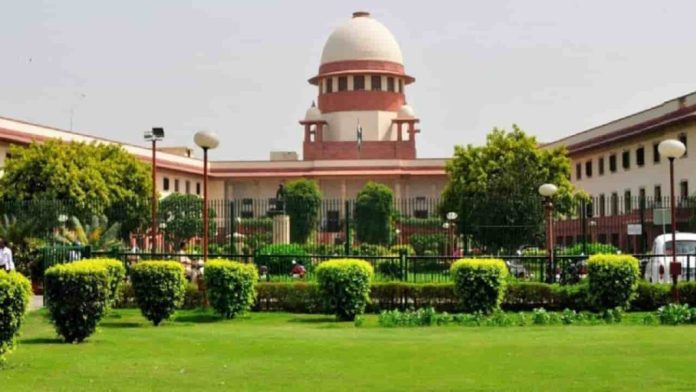The State of Bihar has defended its executive decision of conducting a caste-based census before the Supreme Court, saying that it was carried out under the constitutional mandates and aimed at creating better government policies for disadvantaged groups, based on their socio-economic data.
Filing a detailed affidavit before the Apex Court, the JDU-BJP alliance government said that it has now taken steps to achieve the same on the basis of the survey report.
Giving an overview of the steps taken in pursuance of the findings of the survey report, including quota benefits, housing scheme, employment generation support, small entrepreneur scheme, and educational support, the Bihar government said that a copy of the report on data released under the caste-based survey has already been sent to all the departments of the state government for framing plans and making schemes for the welfare of people of the state.
Different departments were working to provide the required welfare benefits to the people of Bihar, it added.
The affidavit was filed in response to a batch of petitions challenging the constitutional validity of the caste-based survey undertaken by the Bihar government.
In October last year, the Division Bench of Justice Sanjiv Khanna and Justice S.V.N. Bhatti had refused to pass any order regarding stay or maintaining of status quo to restrain the State of Bihar from acting on the data of the caste survey. It said it could not stop any government from taking a decision.
The Apex Court made the oral observation while hearing a plea filed by non-governmental organisations Youth for Equality and Ek Soch Ek Prayas challenging the Patna High Court verdict of August 2, which upheld the Bihar government’s decision to undertake a caste-based survey.
Senior Advocate Aparajitha Singh, appearing for the petitioner, argued that the state government’s decision to seek caste details was contrary to the Supreme Court’s verdict in KS Puttaswamy, which recognised the right to privacy as a facet of fundamental right to life under Article 21 of the Constitution.
Appearing for the Bihar government, Senior Advocate Shyam Divan argued that the court had not passed any order against the publication of data. He said the Apex Court had indicated that first and foremost it would decide whether notice was to be issued.
The Bench, while noting that the matter required to be heard at length, adjourned the hearing until January next year, while issuing formal notice to the state government on the petitions.
Earlier on August 18, the Apex Court had refused to stay the publication of the caste survey results on the grounds that the exercise has already been completed by the state government and that it would not take a decision without hearing all the parties in the case.
The Bench of Justice Sanjiv Khanna and Justice S.V.N. Bhatti further contemplated whether the right to privacy under Article 21 of the Constitution would be affected by the caste-based survey since only cumulative data, and not personal data relating to each participant, was to be released by the state government.
The Apex Court noted that in Bihar, most people were aware of the caste of persons living in the neighbourhood, which might not be the case in a metropolitan city like Delhi.
On August 1, the Patna High Court upheld the caste-based survey undertaken by the Bihar government and dismissed three petitions filed by social outfit Youth for Equality and some individuals.
Apart from questioning the validity of the process, the pleas sought quashing of the June 6, 2022 notification issued by the Deputy Secretary of Bihar in respect to conducting a caste-based survey in the state.
The Nitish Kumar-led government had kickstarted the caste-based Census on January 7 this year, claiming that the exercise would provide scientific data for carrying out welfare schemes for weaker sections of the society.
The state government rolled out the first phase of the survey on January 7, under which a household counting exercise was taken up. It ended on January 21.
The second phase of the survey started on April 15, wherein information was collected about the caste of people and their socio-economic conditions. The entire exercise was scheduled to end by May this year.
However on May 4, the High Court of Patna ordered an immediate stay on the second phase of caste census till July 3. The Bench of Chief Justice K. Vinod Chandran and Justice Madhuresh Prasad directed that the data collected so far be preserved.
On August 1, the Division Bench of Chief Justice K. Vinod Chandran and Justice Partha Sarthy of the High Court upheld the survey, calling it ‘perfectly valid and initiated with due competence’.
The petitioners, including one Akhilesh Kumar from Nalanda, then moved the Apex Court against the High Court verdict, which refused to pass any orders in the absence of a prima facie case


